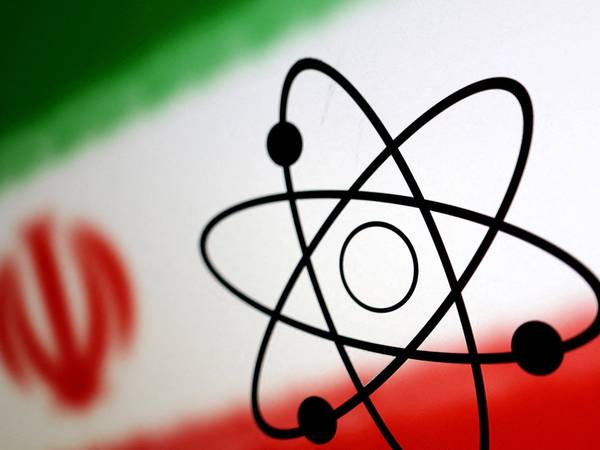The UN’s nuclear watchdog warned on Monday that Iran is continuing to enrich uranium to near weapons-grade levels.
The International Atomic Energy Agency (IAEA) said that Iran's estimated stockpile of enriched uranium had reached more than 30 times the limit set out in the 2015 nuclear agreement between Tehran and world powers.
According to a confidential IAEA report, which Iran International has read and reviewed, as of May 11, Iran has 142.1 kilograms of uranium enriched up to 60 percent which is an increase of 20.6 kilograms since that last report by the UN watchdog in February.
“It's a pretty grim picture of Iran's advancing nuclear program,” said Andrea Stricker, the Deputy Director of the Foundation for Defense of Democracies (FDD)’s Nonproliferation and Biodefense program.
Stricker told Iran International that Iran is getting dangerously close to gaining nuclear weapons and time is of the essence.
“Now they [Iran] have enough, at the 60% level, to make almost four nuclear weapons. And that material can be used directly in a nuclear device, if a country chose, and then there's enough for probably more than 13 weapons overall, and they can fabricate that into weapons grade uranium within around five months.”
“Then it would take additional time, at least six months for them to be able to fabricate that fuel into a crude nuclear device. And then even longer, perhaps more than a year, to be able to put it on a ballistic missile,” said Stricker.
“Basically, once you get to 20%, you have done most of the work on a technical level, and then it's only a matter of days, for example, to transfer 60% enriched uranium to weapons grade. And that's what we're looking at, a very short breakout time, perhaps less than seven days to make the weapons grade uranium for one bomb,” she added.
Could Iran acquire a bomb?
Patrick Clawson, a Research Counselor at The Washington Institute, said the latest developments are disturbing.
"It's very discouraging because, a year ago, the United States government thought that it had reached an informal agreement with Iran where Iran would essentially stop its production of 60% enriched uranium in return to the United States not making too much effort to stop Iranian sales of oil to China," said Clawson.
The nuclear watchdog's warning comes in the backdrop of escalating tensions in the region. Just last month Iran and Israel, for the first time, conducted direct strikes on each other's territories.
"The International Atomic Energy Agency's chief, Mr. Grossi, says that Iran could produce the fissile material for a bomb in about a week," said Clawson.
For a bomb delivered by a missile, however, Clawson said it could take up to a year.
"A year is not that long," he added.
Stricker believes Iran's advancements could empower the Islamic Republic by giving it a “nuclear deterrent," allowing it to “pursue arming its proxies to have them destabilize other governments and countries, and launch attacks.”
Shifting paradigms in the Middle East
According to a report released Monday by the Wall Street Journal, the Biden administration is pressing its European allies not to confront Iran on its nuclear program.
The report said the US was arguing against an effort by Britain and France to disapprove Iran at the IAEA's member state board.
Iran insists that its nuclear program is for peaceful purposes. Rafael Mariano Grossi, the IAEA chief, has previously warned the UN agency cannot guarantee that none of Iran’s centrifuges may have been used for clandestine enrichment.
Former President Donald Trump pulled out of the Iran nuclear deal in 2018. Under the original deal, struck in 2015 by the Obama administration, Iran was allowed to enrich uranium only up to 3.67% purity, maintain a stockpile of about 300 kilograms and use only very basic IR-1 centrifuges.
In mid-May, Kamal Kharrazi, a senior advisor to Iran's ruler Ali Khamenei, said that Iran would be left with no option than to change its nuclear doctrine if Israel threatened its nuclear facilities amid heightened tensions.
The US State department deputy spokesperson said, in response, when asked about Kharrazi's comments during a press briefing, that the US would not allow Iran to build a nuclear bomb.
Iran's foreign ministry spokesperson later said in Tehran that Kharrazi's remarks were not the official position of the Islamic Republic.
There is great risk at one point, according to Clawson, that the Islamic Republic decides the time is right for Iran to move forward.
"If Iran were to explode a nuclear device, much less to test an actual bomb that would change the Middle East, and in particular, it would put a lot of pressure on a place like Saudi Arabia, whose leaders have for years, said to the United States, If Iran gets a bomb, we'll get a bomb," he said.
